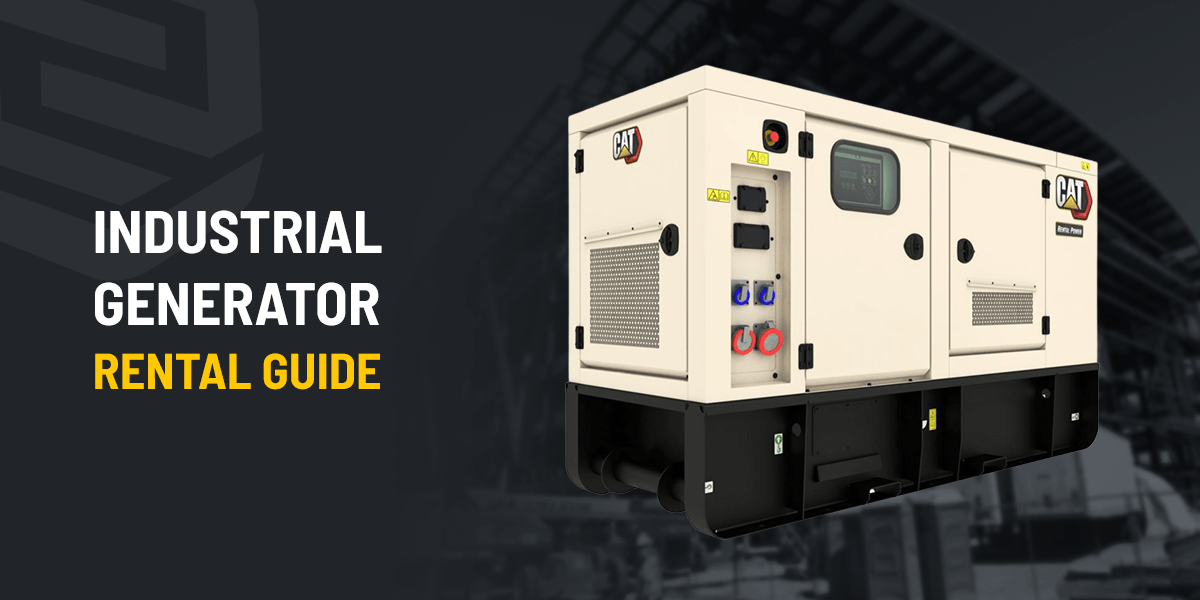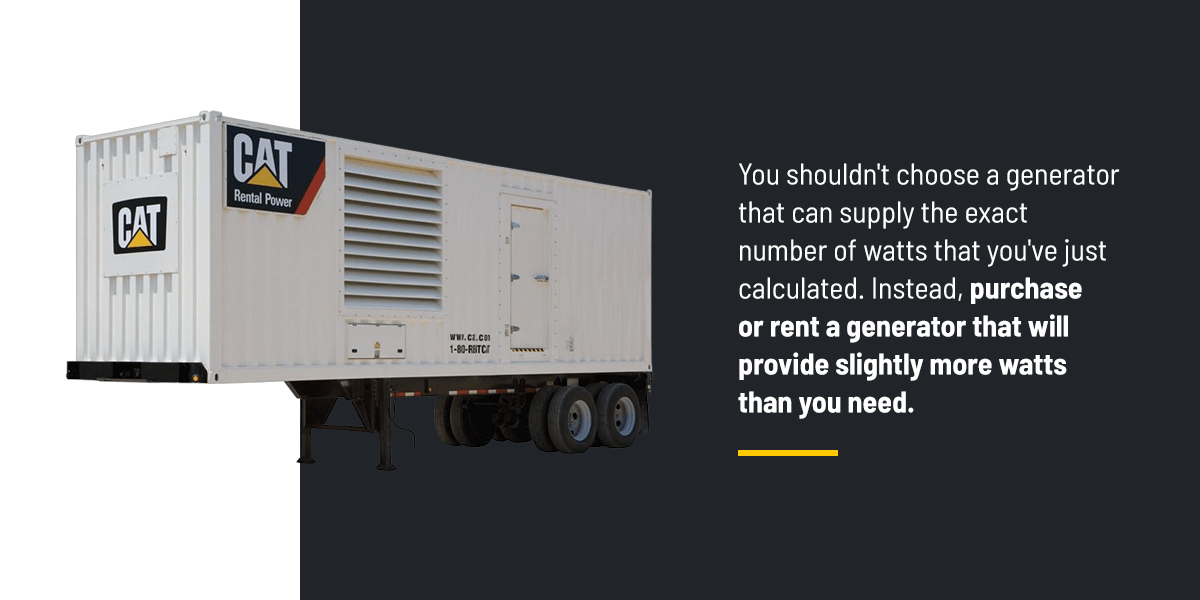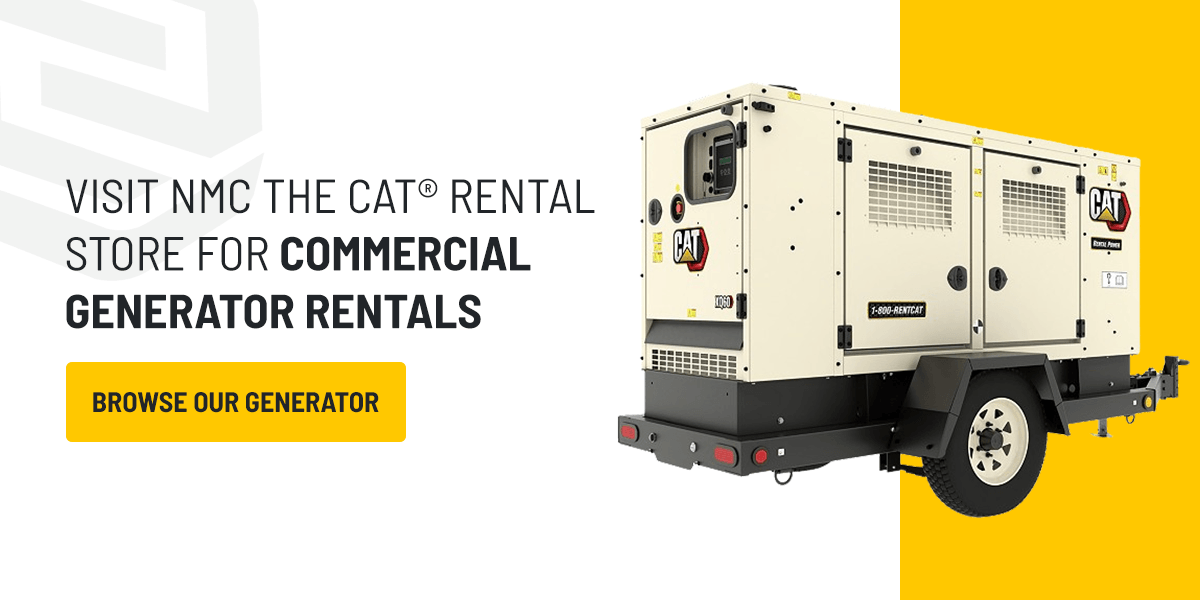
Industrial Generator Rental Guide
Category: Rental
Electricity is an essential part of society, and many of our jobs depend on having an adequate amount of power. But any number of things might go wrong and take out your electricity, from power lines going down to natural disasters disrupting electrical supply.
Even when nothing goes wrong, generators are still essential for events and workplaces that either are too far off the grid for proper energy supply or need more energy than current power levels can provide.
In all of these cases, many people turn to industrial generator rentals to supply the power they need. In this guide, we’ll take you through everything you need to know for how to rent an industrial generator.
What Is an Industrial Generator?
Like any other generator, industrial generators are designed to provide power in a given situation. However, industrial generators are set apart from other generators in two main ways — construction and energy output.
Industrial generators are specially constructed to thrive in an industrial setting. They might be used in a factory, construction site, pipeline or any number of rougher locations. Industrial generators are built to weather the most difficult conditions, and they’re designed to be dependable in any industrial setting.
Industrial generators are also defined by their energy output. Generators have a wide range of supply capabilities and produce a range of watts or megawatts, depending on their size and type.
Tips for Renting an Industrial Generator
Now that you know what you’re looking for in an industrial generator, you can begin to figure out which generator you want to rent. There are many different factors to consider before choosing a generator, so here are our best tips for renting a commercial-grade generator:
1. Determine Why You Need a Generator
This might be an easy question to answer, but it’s an important question to think through anyway. You may think you need an industrial generator, but in reality, your workplace, household or event may only need a smaller generator.
There are four broad categories of generators, defined by the wattage they produce:
- Recreational: Recreational generators generally have the lowest wattage and are commonly used for RVs, tailgating parties or camping trips.
- Emergency: The next largest category, emergency generators, usually produce more wattage than recreational generators and are often used to power critical areas of a home in a power outage.
- Professional: Supplying more watts than emergency generators, professional generators might be used for construction sites and other similar areas that need a lot of energy but don’t necessarily need to power everything.
- Industrial: Finally, industrial generators supply the most watts and keep entire buildings or industrial sites running.
If you want to power a community event for an evening, you probably don’t need an industrial generator, no matter how large the event might be. But if you’re looking for something to power a hospital through a blackout or run a full-time mining site, then an industrial generator is likely what you need.
2. Find the Correct Size
Once you’ve established what you need your generator for, you can decide what size is best for your event. You know you need an industrial generator, but how can you determine how many watts it should produce?
Follow these steps:
- List everything you’ll need to power: The first step is defining all of the devices you’ll need your generator to power. Write down every piece of equipment, from lights to machines.
- Determine the running and starting watts of each piece of equipment: Running watts are the amount of energy a piece of equipment needs to run. Starting watts are the amount of energy a piece of equipment needs to start. Running and starting watts are often equal in equipment such as lights which don’t require extra power to start. However, equipment with a motor will often require two to three times as much energy to start as it takes to run.
- Add together all running watts: This total number is the bulk of what your generator will have to sustain for long periods.
- Add the largest starting watts: Find which piece of equipment has the highest required amount of starting watts. When this number is added to your wattage total, you’ll be able to run and start every piece of equipment without overloading your generator.
Once you’ve established the number of watts your generator will need to power, you can use that number to find the best generator.
However, you shouldn’t choose a generator that can supply the exact number of watts that you’ve just calculated. Instead, purchase or rent a generator that will provide slightly more watts than you need. Then, if you need to add anything extra to your generator, or if there was a slight miscalculation, your generator won’t overload.
3. Choose the Best Fuel
Your generator needs to power itself somehow, and because it isn’t connected to a power grid, it needs an alternate fuel source. This gives you another decision to make — which fuel to use for your generator.
There are four options:
- Gasoline: Gasoline usually only makes sense for smaller generators. It’s more expensive to purchase in large quantities, and it can only be stored for about a year.
- Diesel: One of the most popular fuels for generators is diesel. It provides the most efficient energy and is easy to maintain. However, you will have to pay to have diesel delivered to your generator.
- Natural gas: Natural gas is the most cost-effective fuel option and can be stored much easier and longer than gasoline and diesel. However, it carries less energy than other fuels and might reduce the output capacity of your generator.
- Propane: Propane can be stored for an unlimited amount of time and is easy to deliver. It has more energy than natural gas but less than diesel and gasoline.
Natural gas and propane are most often used for generators, though diesel is an effective option for industrial use.
If your generator is intended to keep your workplace running in case of a blackout, then natural gas or propane are probably better options. If you want to use your generator for day-to-day industrial operations, diesel could be a better choice.
4. Consider Paralleling
Even if you know you need to rent a large industrial generator, you still want to get the most out of your budget. Paralleling can help you get more generator power for a potentially lower cost.
Paralleling is purchasing several smaller generators instead of one larger generator. Though every situation is different, this can often be a smart idea. If one generator has to be shut down, the rest are still available. And if you need an especially large generator, it might be more affordable to rent two smaller generators than to rent a single, massive generator.
This may not work for every situation. You’ll have to consider your means of transportation, individual rental costs and various other factors. However, paralleling can often be a more reliable and cost-effective way to power the same amount of equipment.
Visit NMC The Cat® Rental Store for Commercial Generator Rentals
At NMC The Cat Rental Store, we supply quality rental industrial generators to keep your workplace powered. Our dependable and powerful generators have you covered whether you run a construction site, manufacturing center or mining operation. Ranging from 25 kilowatts to 2,000 kilowatts, our generators are perfect for any situation — and they are towable, giving them maximum mobility and flexibility.
Browse our online selection of industrial generator rentals to find the best generator for your business, or contact us online for more information today!


